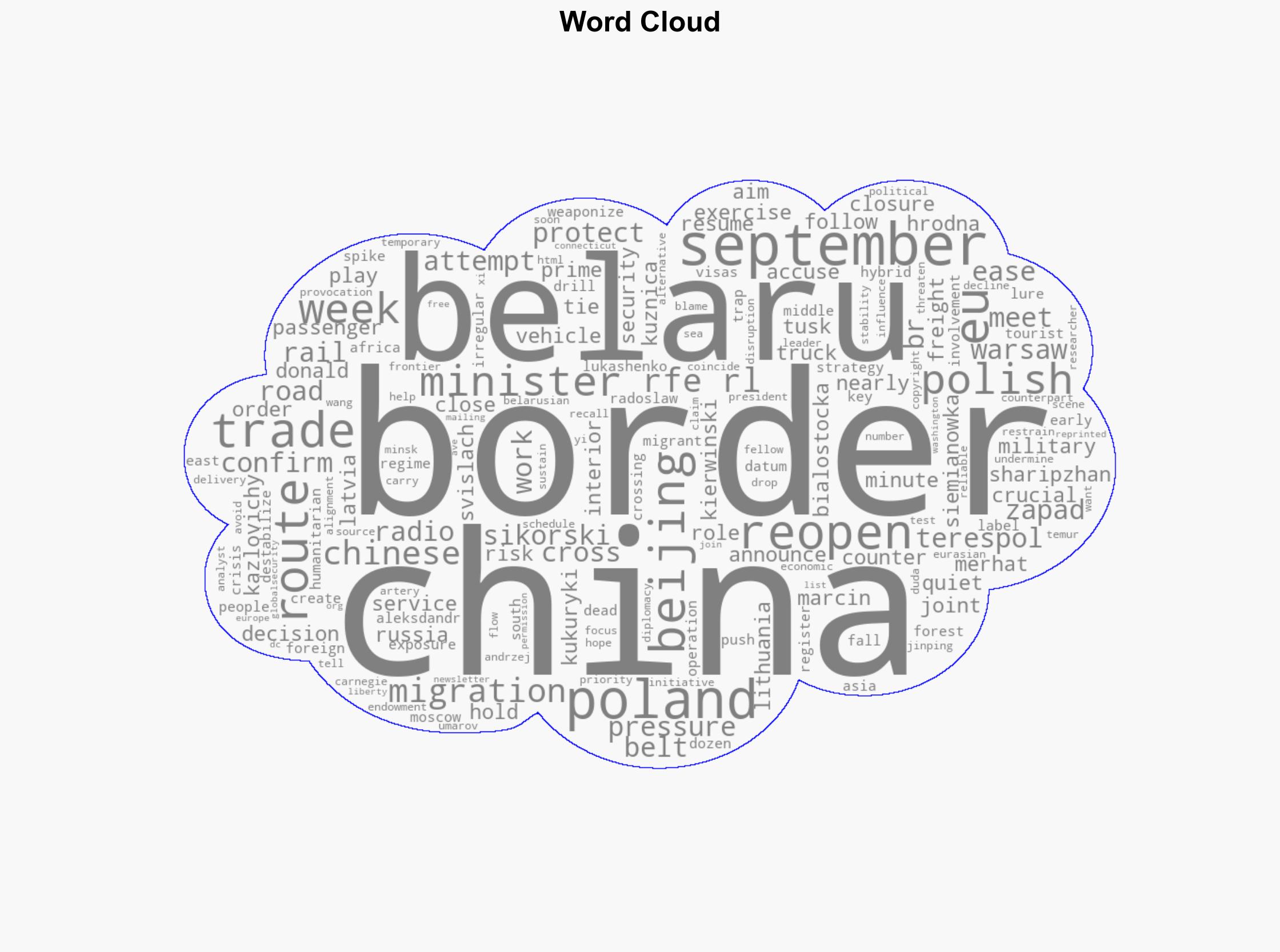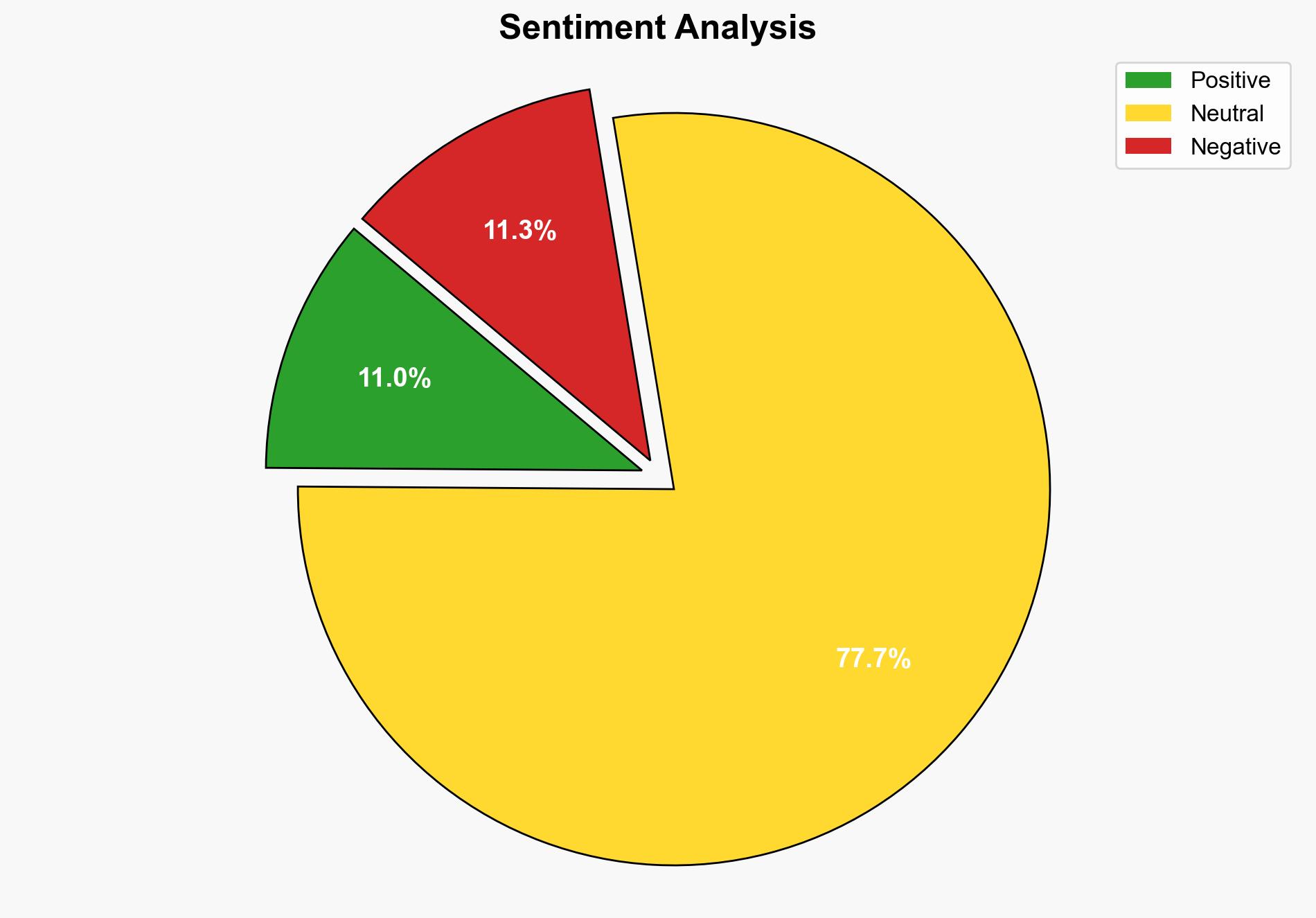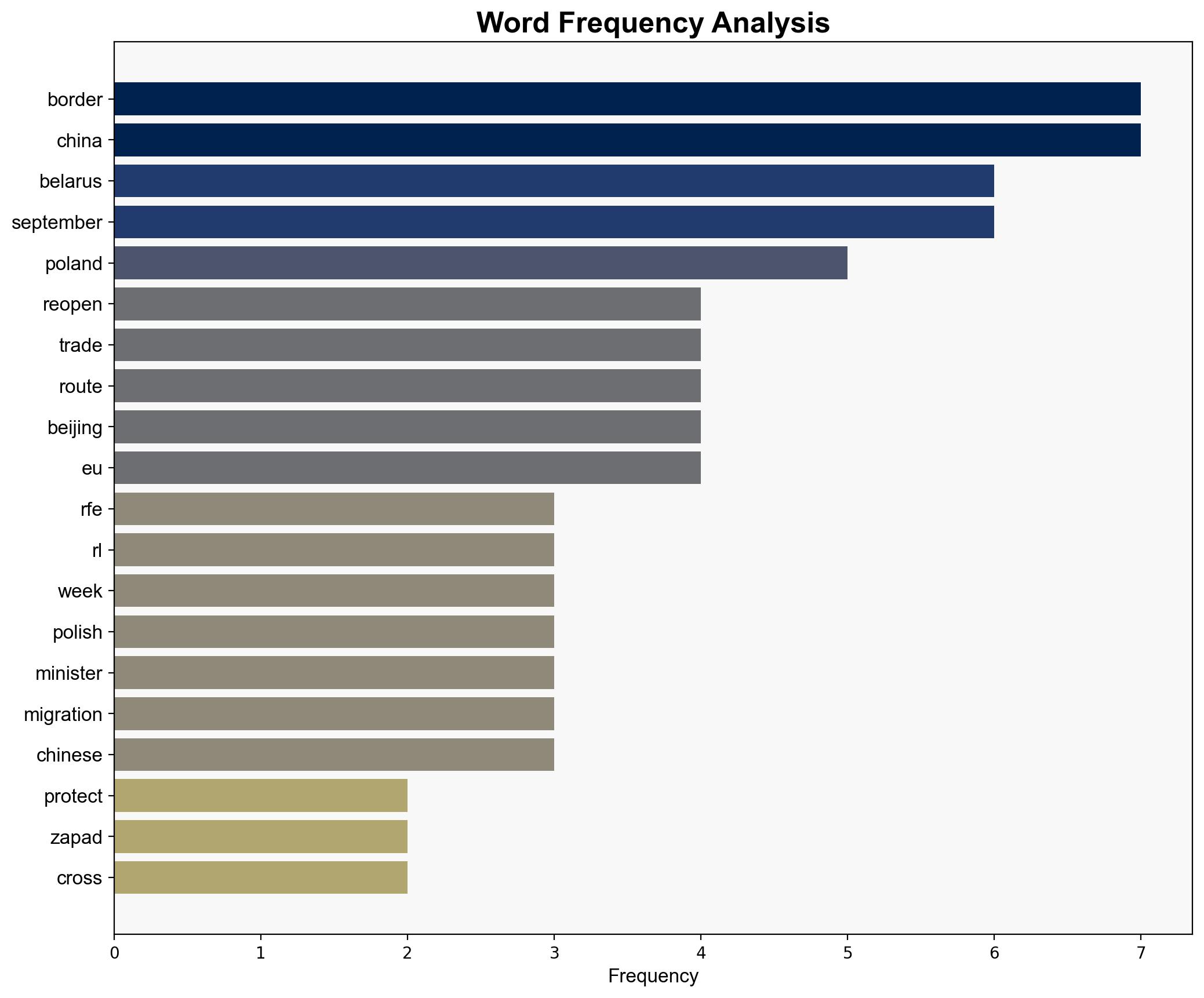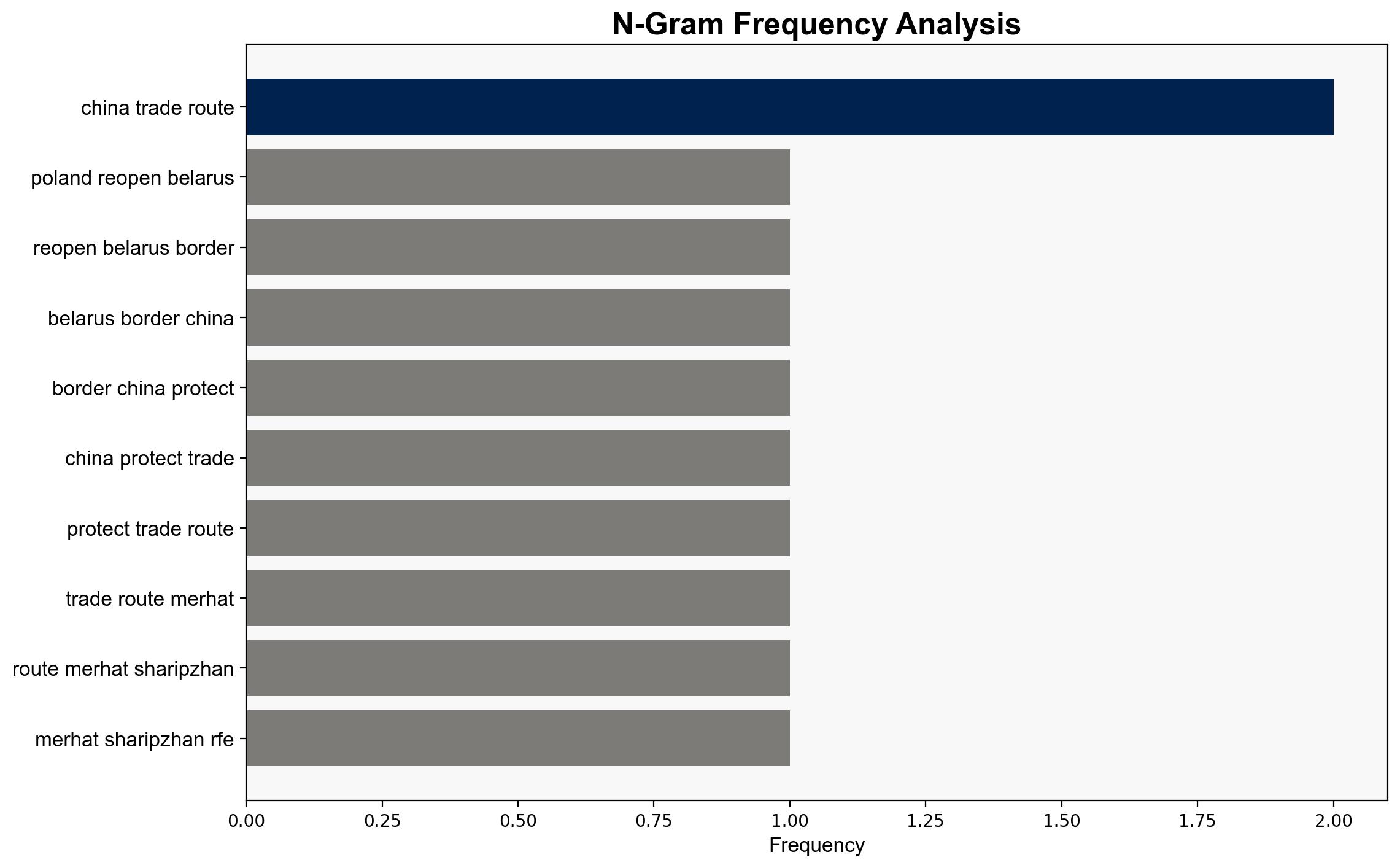Poland Reopens Belarus Border As China Moves To Protect Trade Routes – Globalsecurity.org
Published on: 2025-09-29
Intelligence Report: Poland Reopens Belarus Border As China Moves To Protect Trade Routes – Globalsecurity.org
1. BLUF (Bottom Line Up Front)
Poland’s decision to reopen its border with Belarus, influenced by China’s strategic interests, suggests a complex interplay of geopolitical and economic factors. The most supported hypothesis is that China’s involvement is primarily driven by its desire to maintain stable trade routes as part of the Belt and Road Initiative. Confidence level: Moderate. Recommended action: Monitor China’s diplomatic engagements in the region and assess potential shifts in Belarus’s border policies.
2. Competing Hypotheses
1. **Hypothesis A**: Poland reopened the border primarily due to China’s diplomatic pressure to ensure the stability of trade routes crucial for the Belt and Road Initiative.
2. **Hypothesis B**: The reopening was primarily a strategic decision by Poland to alleviate humanitarian concerns and reduce migration pressure, with China’s involvement being secondary.
Using ACH 2.0, Hypothesis A is better supported due to the timing of diplomatic meetings between Polish and Chinese officials and the strategic importance of the trade routes for China’s economic interests.
3. Key Assumptions and Red Flags
– **Assumptions**: It is assumed that China’s primary interest is economic stability rather than geopolitical influence. It is also assumed that Poland’s decision was not influenced by other external pressures.
– **Red Flags**: The lack of detailed information on Belarus’s internal motivations and the potential for China to leverage economic dependencies for political gains.
– **Inconsistent Data**: The exact nature of China’s diplomatic pressure remains unclear, and there is limited information on Belarus’s response to these dynamics.
4. Implications and Strategic Risks
– **Economic**: Disruption of trade routes could impact the Belt and Road Initiative, affecting global supply chains.
– **Geopolitical**: Increased Chinese influence in Eastern Europe may alter regional power dynamics, potentially straining EU-China relations.
– **Psychological**: Perceptions of China’s growing influence could lead to increased skepticism and resistance from EU member states.
5. Recommendations and Outlook
- Monitor China’s diplomatic activities in Eastern Europe to assess shifts in influence.
- Engage in dialogue with Belarus to understand their strategic objectives and potential alignment with Chinese interests.
- Scenario Projections:
- Best: Stabilization of trade routes with improved EU-China relations.
- Worst: Escalation of regional tensions leading to economic disruptions.
- Most Likely: Continued diplomatic negotiations with periodic border adjustments.
6. Key Individuals and Entities
– Marcin Kierwinski
– Donald Tusk
– Radoslaw Sikorski
– Wang Yi
– Xi Jinping
– Andrzej Duda
– Aleksandr Lukashenko
7. Thematic Tags
national security threats, economic stability, geopolitical strategy, regional focus




